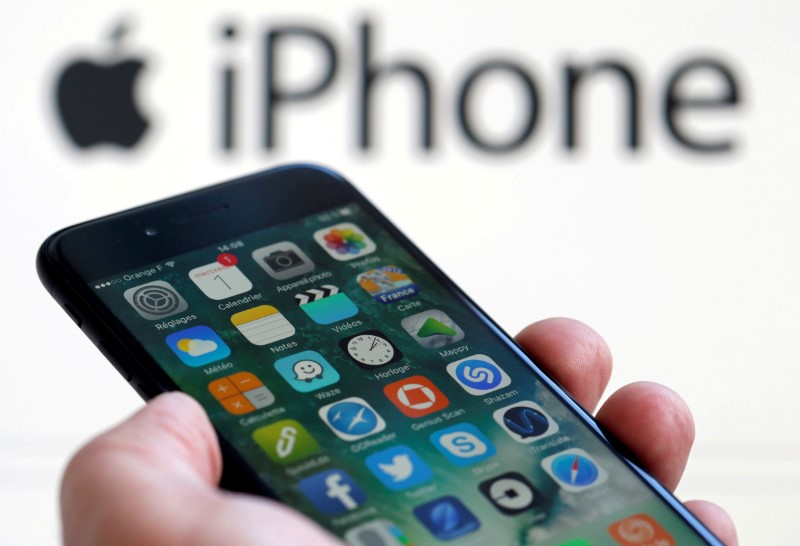By Susan Heavey and Stephen Nellis
WASHINGTON/SAN FRANCISCO (Reuters) - U.S. trade officials have agreed to investigate Qualcomm Inc's (O:QCOM) allegations that Apple Inc (O:AAPL) infringed on patents with its iPhone 7 and other devices, the U.S. International Trade Commission said on Tuesday.
The ITC will make its decision "at the earliest practicable time" and will set a target date for completing its investigation within the next 45 days, the commission said in a statement.
Qualcomm filed the complaint in early July, asking U.S. trade regulators to ban certain models of the iPhone that contain so-called broadband modem chips, which help phones connect to wireless data networks, that were not made by Qualcomm. Apple began using broadband modem chips made by Intel Corp (O:INTC) in the iPhone 7.
Qualcomm has not alleged that Intel chips violate its patents but says the way Apple uses them in the iPhone does.
"We look forward to the ITC’s expeditious investigation of Apple’s ongoing infringement of our intellectual property and the accelerated relief that the commission can provide,” Don Rosenberg, executive vice president and general counsel of Qualcomm, said in a statement.
Intel declined to comment. Apple pointed to Chief Executive Tim Cook's earlier comments that Qualcomm had not yet offered it "fair and reasonable" licensing terms for Qualcomm's technology.
"I don't believe anyone is going to decide to enjoin the iPhone based on that," Cook told investors in May on the company's earnings call, his most recent public comment on the topic. "I think that there's plenty of case law around that subject, but we shall see.”
As the ITC considered whether to take up the case, a group representing Alphabet Inc's (O:GOOGL) Google, Amazon.com Inc (O:AMZN), Microsoft Corp (O:MSFT) and Facebook Inc (O:FB) sided last month with Apple, saying Qualcomm's request to bar the import of some iPhones would hurt consumers.
In turn, Qualcomm accused the group of "a coordinated effort aimed at misdirecting" the trade regulators. It said Apple was free to choose chips from a variety of vendors without necessarily infringing Qualcomm's patents.
The fight before trade regulators in Washington is one of several major legal battles involving Qualcomm and Apple. The two companies have cases pending before separate federal courts in California, and Qualcomm also faces a complaint from the U.S. Federal Trade Commission.

Analysts are watching the ITC case closely because the trade regulator moves more quickly than many courts and could deliver a decision ahead of the pending lawsuits.